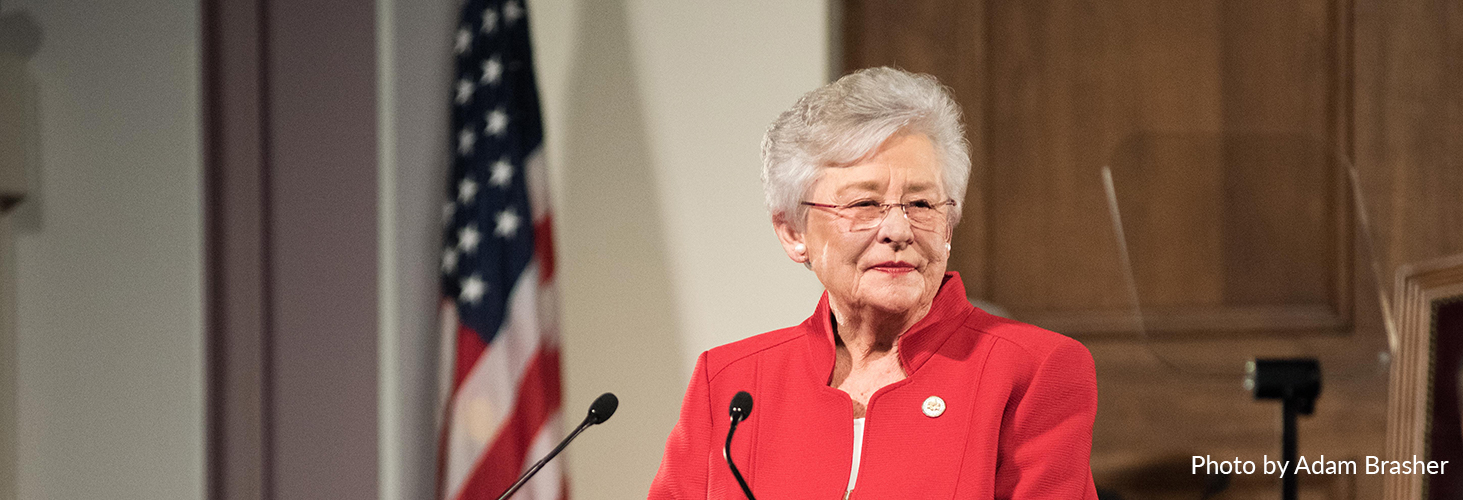By Chip Brownlee
Alabama Political Reporter
Alabama may become one of nearly a dozen mostly Republican states that are seeking a waiver from the federal government that could allow the state to institute work requirements for some of those who are on Medicaid.
Gov. Kay Ivey said Tuesday that she has directed Medicaid Commissioner Stefanie Azar to begin working on seeking a waiver for the requirements and raising co-pays for beneficiaries. States are typically required to request waivers from the federal government for changes to their Medicaid programs.
“That process has been ongoing, and I look forward to the future implementation of those policies,” Ivey said.
The Trump administration last week issued guidelines for states wanting to test the requirement and has signaled that it would approve the waivers, a shift from previous policy that did not allow states to institute such a requirement.
Such a requirement, never before implemented in the 50-year history of the program, would force adult, able-bodied Medicaid beneficiaries to get a job or risk losing their coverage.
Eleven states, all but one of which has a Republican governor, have already submitted waivers. One state, Kentucky, has had their waiver approved, and another southern state, Louisiana, which has a Democratic governor, has said they make also seek a waiver. Alabama has not yet submitted a waiver request.
Though Medicaid wouldn’t need approval from the Legislature to move forward with implementing work requirements, Sen. Arthur Orr, R-Decatur, has proposed a bill that would require the agency to implement the requirements.
The program, if implemented, would likely allow the state to weigh factors like employment, skills training, job-searching and education when deciding which individuals can qualify for Medicaid.
Republicans say the measure would cost states money and would incentivize beneficiaries to get a job. Ivey said the move could be a cost-saving measure for Medicaid, Alabama’s biggest budget item.
“Improving Medicaid delivery and controlling costs is central to my budget; that is why I instructed Commissioner Stephanie Azar in October 2017, to begin working on implementing work requirements and increased copays for Medicaid recipients,” she said.
Ivey’s office did not offer specifics about changes to co-pays for those on Medicaid.
Her office said the move was aimed at increasing efficiency and decreasing costs “in an effort to be good stewards of taxpayer dollars.”
While the Medicaid agency requested much less in appropriations this year, it still eats up the largest portion of the state’s General Fund. Ivey’s proposed budget calls for the agency to receive $755 million in funding this year, up 7.7 percent from last year.
Orr’s bill outlines which individuals would be exempt from the requirement including those who under the age of 19, over the age of 65, medically unfit for employment, pregnant, the caretaker of a child under the age of 1. Individuals who care for a child with a serious medical condition or disability or those who are enrolled in a drug or alcohol rehab program would also be exempt.
Otherwise, able-bodied adults would be required to work or volunteer 20 hours per week, averaged monthly. Orr’s bill would also see the agency verify eligibility semi-annually instead of annually.
But it isn’t clear how many adults the move would actually affect.
Alabama has one of the lowest adult working-age Medicaid enrollments in the country with the majority of those on the program being children, pregnant women and low-income seniors. In November 2017, 52.3 percent of Medicaid beneficiaries were under the age of 18. Another 15 percent were low-income or disabled seniors over the age of 60.
State Sen. Trip Pittman, R-Montrose, chair of the Senate Finance and Taxation General Fund Committee, said he asked Ivey to seek the requirement. Pittman has long been a budget hawk who sought cost-saving measures in the Legislature, but he said Tuesday that he didn’t believe it would directly affect the budget initially.
“I don’t think it does that much in terms of initial value,” Pittman said. “But what it does do is it creates the dynamics of people going out and getting jobs or getting better jobs. America is about upper mobility, going out and pursuing opportunity.”
Pittman said there are some adults who could work or could get better jobs if only they were given some “incentive.”
“People can get very complacent, not everybody, but some people can get complacent so I think it’s always important for people to be encouraged,” Pittman said.
Democrats are largely opposed to the measure, which they believe would be burdensome for already low-income individuals.
“Folks are not on Medicaid because they want to be,” said Democratic Senate Minority Leader Billy Beasley, D-Clayton. “It’s a very small percentage of folks who are able-bodied.”
Most adults in the program are disabled, blind or the caretaker of a child in the program.
“If you have a disability, you can’t help it,” Beasley said. “Medicaid is to help people who have shortcomings of some kind, whether it’s a physical shortcoming or whatever it is. Medicaid does a real good job of screening folks who are eligible. I just don’t know that we would have very many people covered by Medicaid that could work.”
The Legislature would not have to move on the work requirements. If the federal government’s Department of Health and Human Services approves the waiver, the state Medicaid Agency will be able to move forward with implementing the requirement.


















































